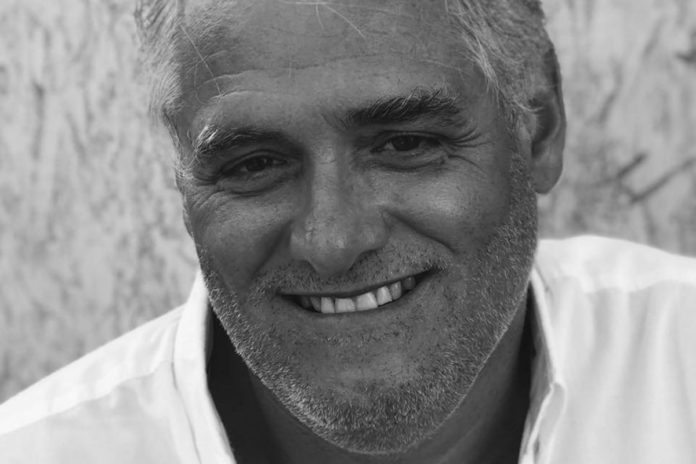Translated from Portuguese by Calvin Olsen
Archaeology of a Gesture
The gesture lasted a split second (the
trace of a feeling) I venture out
to find it but the gesture
is no longer there. Its
dance absent from the surface of the air
(ethical or
amoral?) I can
only guess. How do you get back to pathos
if it’s not carried in memory (was it
a passionate gesture or
was it one
devoid of history?)
Arqueologia de um gesto
Durou um átimo o gesto (o
rasto de um sentimento) saio
à sua procura mas o gesto
já não está. A
sua dança ausente da superfície do ar
(ético ou
amoral?) só o
posso adivinhar. Como recuar ao pathos
se não o trago na memória (foi
um gesto apaixonado ou
foi um
gesto sem história?)
A Sailboat in Mykonos
The
small sailboat dances the
undercurrent’s dansa (doesn’t relinquish the sand
farther than a tense knot). The
miniscule hull rises and
descends
in freedom—
seen from the beach it seems happy (insubordinate
indominable)
touring for some reason the
same spot on the map. Now notice how it lives
the illusion of movement
as do the windmills of Mykonos (in circles
days without end)
cutting thin slices of wind propelling to
no place at all.
Um barco à vela em Míconos
O
pequeno barco à vela dança a
dansa das vagas (não se afasta da areia mais
do que uma tensa amarra). O
pequeno casco sobe e
desce
em liberdade –
visto da praia é feliz (indómito
insubornável)
percorrendo sem porquê o
mesmo ponto do mapa. Repara como ele vive
a ilusão do movimento
qual os moinhos de Míconos (às voltas
dias sem fim)
cortando rodelas de vento rumo a
lugar nenhum.
Res ipsa loquitur
to Adam Zagajewski
In a ruin
in the ruins of the Roman palace of Split
someone
left (in Croatian) a warning
to politicians. It wasn’t enough for Constantine
to have demolished his past
here comes the present to ridicule Diocletian
in the skin of
his own home. The Roman knows nothing of
Dalmatia’s oil deposits (even
if he claims divinity
in his case: the son of Jupiter). First
because he’s retired. Then because he
only reads Latin.
Res ipsa loquitur
a Adam Zagajewski
Numa ruína
em ruínas do palácio romano de Split
alguém
deixou (em croata) um aviso
aos políticos. Não bastava Constantino
lhe ter delido o passado
vem agora o presente zombar Diocleciano
na pele da
sua própria casa. O romano nada sabe
do petróleo da Dalmácia (ainda
que se diga divino
no caso: um filho de Júpiter). Primeiro
porque está reformado. Depois porque
só lê latim.
About the Author
João Luís Barreto Guimarães was born in Porto, Portugal (June 1967) where he graduated in Medicine. He is a poet as well as a Breast Reconstructive Surgeon. His poems have been published in anthologies and literary magazines in Portugal, Spain, France, Belgium, Holland, Germany, Austria, Italy, United Kingdom, Croatia, Slovenia, Montenegro, Bulgaria, Macedonia, Brazil, Mexico, Dominican Republic, Uruguay, and the United States.
His poems and their translations to English have appeared in: World Literature Today, Poetry London, Asymptote, The Banyan Review, Salamander, Anima, Tupelo Quarterly, The London Magazine, The Columbia Review, The Chaattahoochee Review, The Cortland Review, Bellevue Literary Review, International Poetry Review, The Common, Ezra Translation, Anomaly, LIT Magazine and World Without Borders.
About the Translator
Calvin Olsen is an internationally-published poet and translator. He holds an MA in English & Comparative Literature and an MFA in Creative Writing. He has taught English, composition, creative writing, and comparative literature at Boston University, The University of North Carolina at Chapel Hill, Wentworth Institute of Technology, and Bunker Hill Community College.
Calvin Olsen’s poetry and translations have recently appeared in Poet Lore, The National Poetry Review, AGNI, Asymptote, and The Cortland Review, among others. He lives in North Carolina, USA, where he is a doctoral student and the poetry editor for The Carolina Quarterly. More of his work can be found at calvin-olsen.com.
















